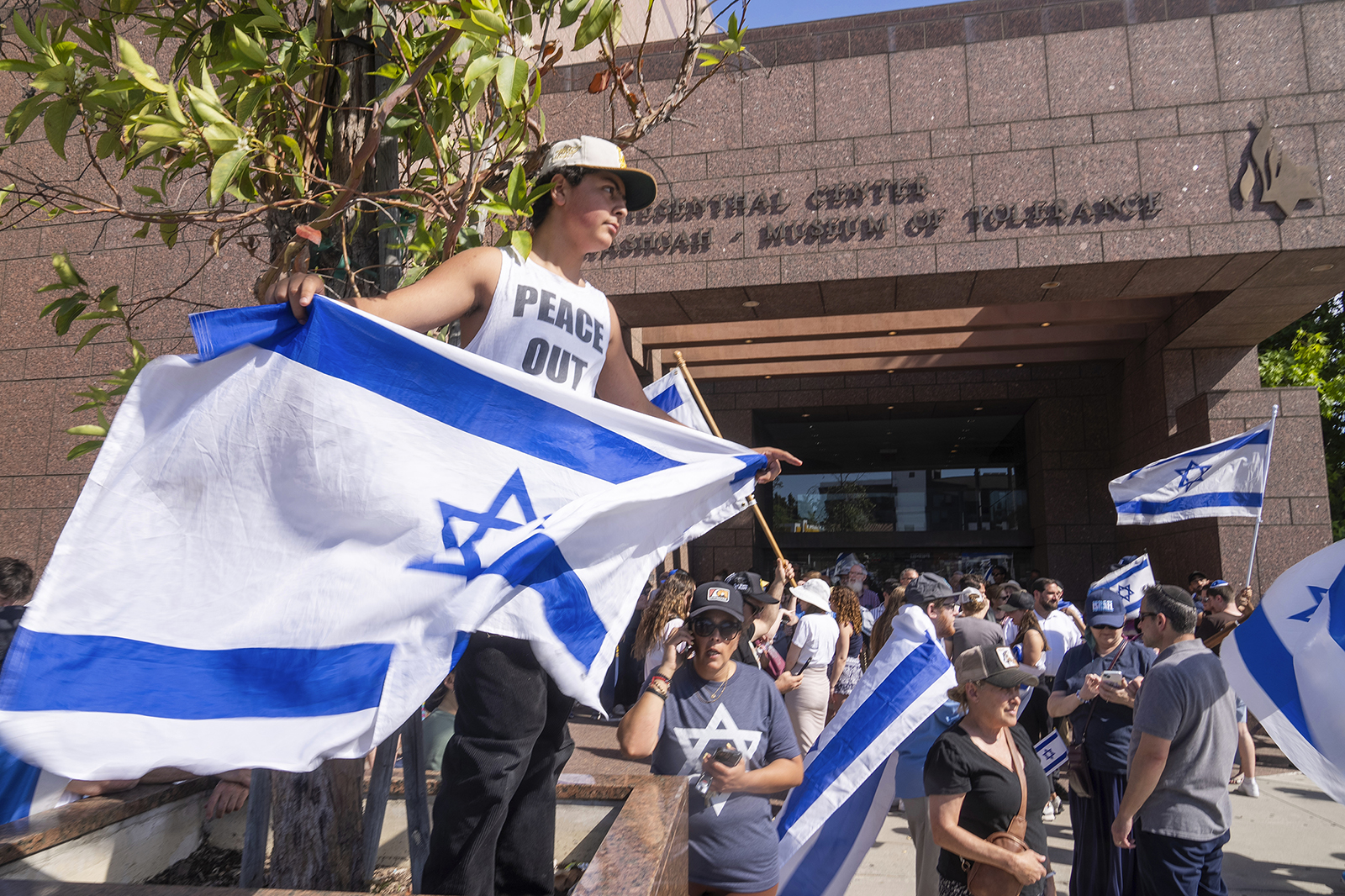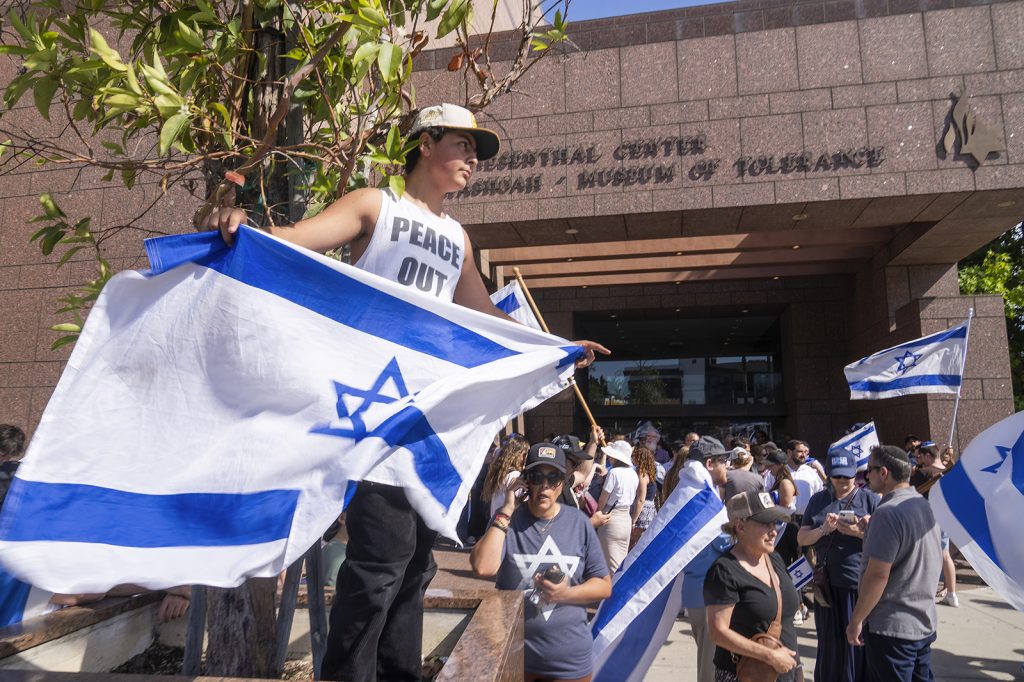
LOS ANGELES (RNS) — L.A. Mayor Karen Bass on Wednesday, June 26, said she is exploring the idea of buffer zones around houses of worship in response to a pro-Palestinian protest at a synagogue on Sunday but said that placing regulations on masks at public demonstrations — at this point — would likely not hold up in court.
There were pro-Palestinian protesters who had their faces covered on Sunday, and by Monday at a press conference, Bass said she would examine a number of issues, like requiring permits for protests and regulating “people wearing masks at protests.”
Support for restricting face coverings at protests comes at a time when state legislators want to criminalize masks — through the use of old laws — in response to pro-Palestinian protests, a Washington Post analysis found.
“I committed to following up with our city attorney about this in the likelihood that we might be able to do an ordinance. At this point, we don’t think that this would withstand judicial scrutiny, but we are still looking into it,” said Bass during a security briefing on Wednesday with the Jewish Security Alliance.
Bass did not give further details of what the buffer zones might look like.
Among those at the briefing were Rabbi Noah Farkas, president of the Jewish Federation Los Angeles; Jeffrey Abrams, Los Angeles regional director of the Anti-Defamation League; and Aubrey Farkas Harris, with the Community Security Service. LAPD Cmdr. Steve Lurie was also there, as well as California Assemblyman Jesse Gabriel and L.A. Councilwoman Katy Yaroslavsky, who talked about securing funding to protect houses of worship in the city.
Wednesday’s convening comes three days after dueling protests — between pro-Palestinian demonstrators and Israel supporters — resulted in brawling and one arrest outside Adas Torah Synagogue in the heavily Jewish neighborhood of Pico-Robertson, according to the Associated Press.
President Joe Biden, Gov. Gavin Newsom, Bass and other leaders condemned the violence and said targeting a house of worship was inexcusable. “Intimidating Jewish congregants is dangerous, unconscionable, antisemitic, and un-American,” Biden said in a statement on X.
The groups Jewish Voice for Peace, IfNotNow LA, and the Palestinian Youth Movement have come out in support of the Pro-Palestinian protesters, who they said were not targeting the synagogue but instead demonstrating against a real estate event held inside the synagogue that promoted “all the best Anglo neighborhoods in Israel.” The Palestinian Youth Movement held a news conference on Tuesday, June 25, outside LA City Hall and said pro-Palestinian protesters were also subjected to violence.
Abrams, at the Wednesday briefing, said that despite the close relationship between the Jewish Security Alliance and city leaders, “it doesn’t mean that we are not critical and that we can’t do more.”
Regarding the mayor’s position on mask regulations, Farkas said, “Let’s test that.”
“It’s not something that we should be afraid of, and we should hold them (city leaders) accountable to try to push that to the very limit,” Farkas said.
Lurie, who is the Jewish liaison of the LAPD, said police were aware of Sunday’s event as well as of protesters who were planning to be there, but “our estimates of how many, and the level of vitriol that we predicted, were not correct,” he said. Lurie said there is an increased number of police cars monitoring the neighborhood.
During the briefing, some expressed frustration there were not more arrests on Sunday. Lurie said police on the scene must “balance between protecting the First Amendment and discouraging or stopping unlawful activity.” He also noted that police were combing through video footage from Sunday to “evaluate and learn from the very real possibility that perhaps there were some missed opportunities there to take some people into custody.”
Lurie noted that blocking the entrance to any business is unlawful in L.A., but he said there is no “special municipal code for places of worship.”
“The act of blocking it, to me, feels like we’re moving into an area where that specific action could be considered a hate crime. We’re going to look at what could be filing criteria for that,” Lurie said.

